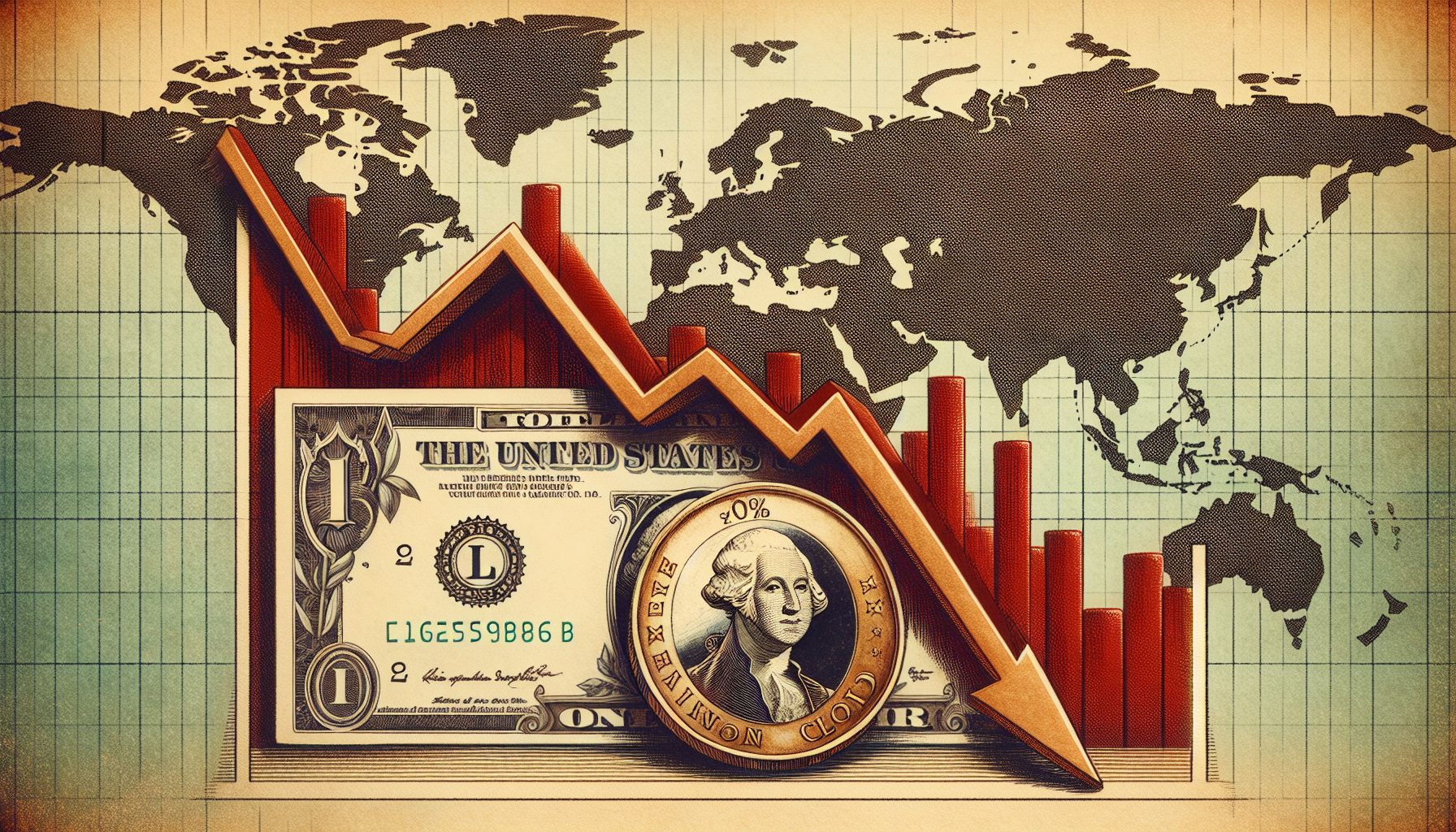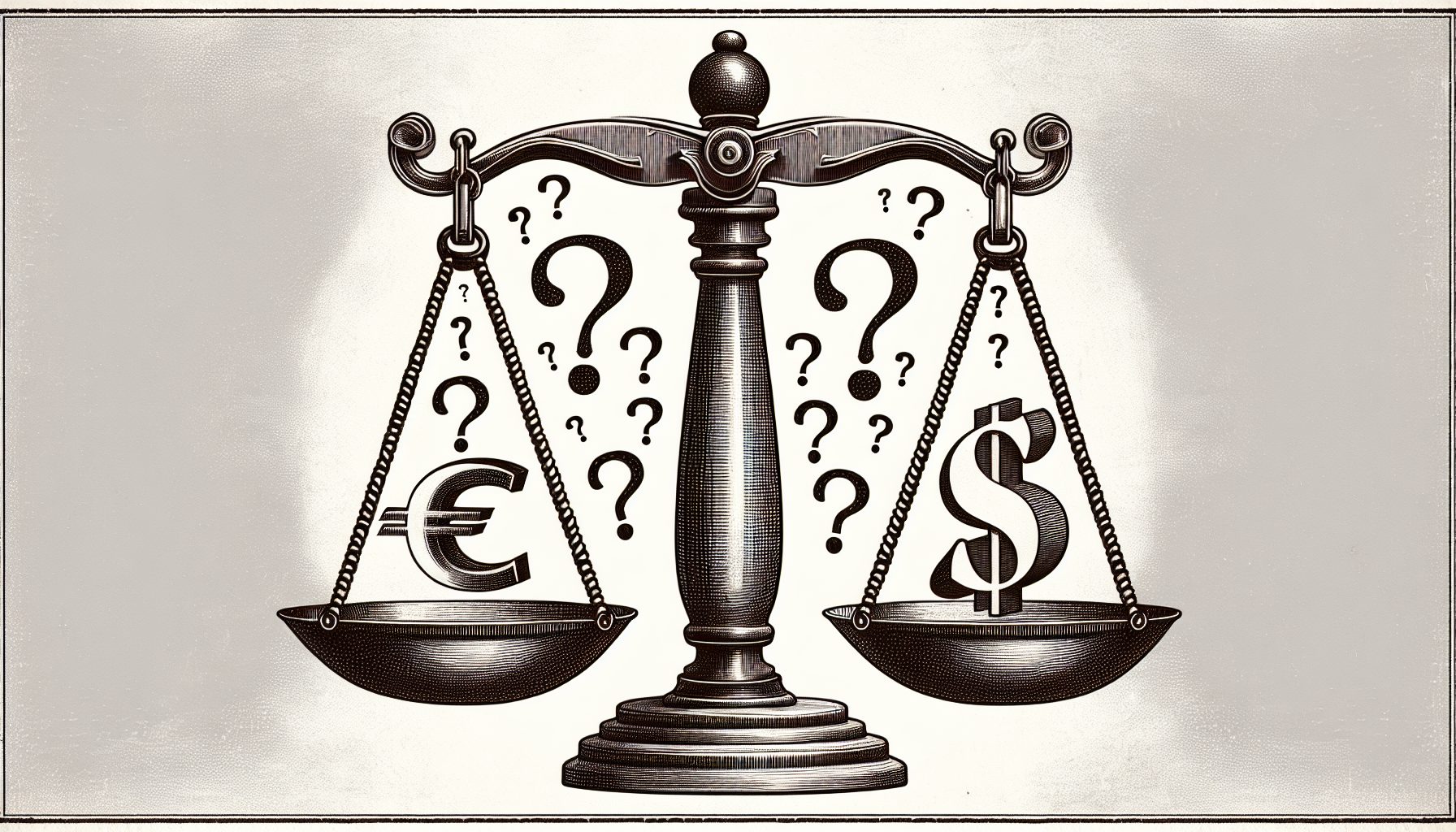Data collection is not a recent development. We have been collecting data for centuries. The term data collection is, of course, a modern-day explanation of the process. The term Big Data was coined recently in 2005. It labels the enormous quantities of information called data sets. They defy traditional methods of analysis and can offer huge benefits if used effectively. Today, everyone, including government offices and private businesses, is tapping into big data to unlock its potential. However, while the potential benefits of Big Data are enormous, it also comes with some significant risks, leaving people still asking: is big data dangerous?
The Risks of Big Data
Reams of documents have been written about the benefits of Big Data. However, it is not exactly a bounty of progress.
Big Data potentially poses severe risks if not gathered correctly, stored securely, or used incorrectly. The key to avoiding and overcoming these is to understand them.
The risks associated with Big Data divide into three main categories:
- Security issues
- Ethical issues
- Deliberate abuse
Security Issues
The more data an organization collects, the more difficult it is to store securely. This also is why some might think big data is dangerous. Certainly, data breaches are becoming common, even in organizations with advanced security and storage systems. The issue of privacy connects to security. Moreover, social media conglomerates, government agencies, insurance giants, and healthcare services have various levels of access to our data.
Yet, data protection laws bind them. Although, the unprecedented numbers of data breaches in recent times show more needs to be done on this front. No company can sit back and claim that their data is beyond the reach of hackers. There are too many instances of data hacking of reputed organizations that disprove this claim.
Many organizations have easy access to our private information. They know our address, what we do, how much we spend, where we go for vacations, etc. Even our bank details and other sensitive information can be accessed with a few clicks. That’s why data security is a significant area of risk with Big Data.
Ethical Issues
We may assume that organizations manage to keep our information protected from hackers and cyber-attacks. Yet, there is this likelihood that they might misuse the information for their personal gain. Data protection laws are in place. But still, some grey areas exist around how companies use data when obtaining it legally. Take the example of credit card companies and insurance providers.
Take insurance providers and credit card companies. It’s certainly no shock that many of them calculate premiums and limits based on customer behaviors. Big data provide them with the input to make highly refined predictions.
There are many other ethical issues, too, involving consent, privacy, and ownership. These have resulted in the formation of new laws.
Deliberate Data Abuse
Is big data dangerous? A major risk with big data is third parties potentially getting their hands on sensitive information. It is estimated that 2.5 quintillion data was generated daily in 2020. That’s an immense amount of data and undoubtedly far more than any organization can manage or analyze efficiently. Hackers and cyber attackers are forever trying to target this data. They can access it illegally and sell it on the Dark Net to make pots of money.
We read news about bank frauds, insurance scams, phishing, cyber-attacks, etc. Indeed, these are typical examples of how organized crime syndicates can deliberately misuse and abuse big data. Scams have become sophisticated, and some truly audacious ones have recently been pulled off.
Big data also plays a role in the misinformation and spread of fake news. This is also a form of abuse. Nefarious organizations can use big data to create fake news. Certainly, such types of content influences our ideas and beliefs on purpose. Nowadays, even winning elections and forming governments mean interference from such influences.
How to Mitigate the Dangers of Big Data
It is crystal clear that big data poses clear risks and dangers. However, that doesn’t mean we should stop using data – that’s impossible and irreversible.
It is equally clear that the potential for positive changes is also huge with Big Data.
Big data analytics is a relatively new discipline. So, the best way to deal with data threats is to learn from mistakes and boost safety and security measures. Indeed, we can reap big data’s benefits by implementing the best security features, conducting proper big data testing, and improving ethical guidelines. This also helps us take those vital steps toward mitigating significant data risks.
Regulatory Measures
Regulations like the General Data Protection Regulation (GDPR) in the EU provide a legal framework for the collection, processing, and storage of personal data. Such regulations can help protect individuals’ privacy rights and set standards for data security.
Ethical Data Practices
Organizations should adopt ethical data practices, including transparency in their data collection methods, respecting user privacy, and ensuring data accuracy. They should also be accountable for their data practices and address any potential harm that may arise from their use of big data.
Technological Solutions
Finally, technological solutions like encryption, anonymization, and secure data storage can help protect data from security threats. AI and machine learning can also be used to detect and prevent data breaches.
Big Data and Social Implications
The rise of big data has profound social implications, influencing everything from individual privacy to societal norms and behaviors. As we navigate this new landscape, the omnipresence of data collection and analysis brings both opportunities and challenges that warrant close examination.
Privacy and Surveillance: One of the most pressing social implications of big data is its impact on privacy. With the ability to track and analyze individual behaviors, preferences, and even movements, big data tools have heightened concerns over surveillance and personal freedom. This constant monitoring, often without explicit consent, blurs the lines between public and private life, raising ethical questions about the right to privacy in the digital age.
Social Stratification and Bias: Big data analytics can unintentionally perpetuate existing social biases and create new forms of stratification. Algorithms trained on historical data may reinforce societal prejudices, leading to biased decision-making in areas like employment, lending, and law enforcement. This can exacerbate inequalities and undermine efforts towards social equity.
Manipulation and Influence: The manipulation of big data can influence public opinion and behavior on a large scale. Targeted advertising, personalized content, and strategic information dissemination can shape individuals’ choices, preferences, and beliefs. This power to influence raises concerns about the autonomy of decision-making and the potential for manipulation by corporations, governments, or other entities.
Digital Divide: The digital divide refers to the gap between those who have access to modern information and communication technology and those who do not. Big data exacerbates this divide, as individuals and communities without access to digital tools or the internet are left out of the data-driven economy. This can lead to disparities in opportunities, services, and societal participation, further marginalizing already disadvantaged groups.
Accountability and Transparency: As big data influences more aspects of our lives, the need for accountability and transparency in data practices becomes increasingly critical. Without clear regulations and ethical guidelines, there is a risk that data can be misused, leading to negative social consequences. Ensuring that data collection and analysis are transparent, understandable, and subject to oversight is essential to maintaining public trust and safeguarding social welfare.
In conclusion, while big data offers significant potential for societal advancement, it also poses challenges that require careful consideration and proactive management. Addressing the social implications of big data involves balancing innovation with ethical responsibility, ensuring that the benefits of data-driven insights are accessible to all while protecting individual rights and promoting social justice.
Big Data’s Role in Innovation and Progress
Big data is revolutionizing how we approach innovation and progress across multiple sectors, driving efficiencies and uncovering new possibilities that were previously unimaginable. The role of big data in fostering advancement is multifaceted, influencing industries from healthcare to urban planning, and beyond.
Healthcare Breakthroughs: In the healthcare sector, big data is enabling significant innovations, such as predictive analytics for patient care, personalized medicine, and advanced disease tracking. By analyzing vast datasets, medical professionals can identify trends, predict outbreaks, and tailor treatments to individual genetic profiles, vastly improving outcomes and saving lives.
Advancements in Technology: The tech industry thrives on big data, using it to develop smarter, more efficient solutions. From enhancing machine learning algorithms to improving cybersecurity measures, big data is at the heart of technological progress. It enables the refinement of artificial intelligence systems that can process and interpret complex data sets, leading to innovations like autonomous vehicles and advanced robotics.
Environmental Solutions: Big data plays a crucial role in environmental conservation and climate change mitigation. By analyzing large datasets, scientists can monitor deforestation rates, track wildlife populations, and model climate change scenarios. This information is vital for developing sustainable practices, reducing carbon footprints, and protecting ecosystems.
Financial Services Transformation: In finance, big data is revolutionizing how companies approach everything from risk assessment to customer service. Predictive analytics can identify potential market trends, prevent fraud, and personalize banking experiences, leading to safer, more efficient, and customer-focused financial services.
Urban Development and Smart Cities: Big data is transforming urban planning and development. Cities worldwide are using data analytics to optimize traffic flow, reduce energy consumption, and improve public services. This leads to the creation of “smart cities” where technology and data make urban living more sustainable and efficient.
Educational Advancements: The educational sector benefits from big data through customized learning experiences and improved administrative efficiency. By analyzing student data, educators can tailor teaching methods to individual learning styles, improving outcomes and engagement. Additionally, big data helps institutions optimize their operations and resources, leading to a better educational environment.
While big data drives innovation and progress, it’s essential to approach its use ethically and responsibly, ensuring that advancements benefit society as a whole without compromising individual privacy or equity. The potential of big data is immense, but it must be harnessed wisely to create a future that is innovative, sustainable, and inclusive.
Strategies for Safe and Ethical Big Data Usage
As the reliance on big data continues to grow across various sectors, it’s crucial to adopt strategies that ensure its usage remains safe, ethical, and respectful of individual rights. Here are key strategies businesses, organizations, and individuals can implement:
Establish Clear Data Governance Policies: Develop and enforce robust data governance frameworks that define how data is collected, stored, processed, and shared. These policies should prioritize data accuracy, privacy, and security, and be transparent to all stakeholders. Regular audits and compliance checks can ensure adherence to these policies.
Enhance Data Security Measures: Invest in advanced security technologies and practices to protect data from unauthorized access, breaches, and theft. This includes encryption, secure data storage solutions, and regular security training for employees. Implementing multi-factor authentication and conducting regular vulnerability assessments can further bolster data security.
Promote Transparency and Accountability: Be open about data collection and usage practices. Provide users with clear information about what data is being collected, for what purpose, and how it is being used or shared. Establishing channels for feedback and queries can enhance transparency and build trust between data collectors and subjects.
Ensure Data Privacy and Consent: Respect user privacy by implementing opt-in policies and obtaining explicit consent for data collection and processing. Users should be informed about their data rights and provided with easy options to control their personal information, including the ability to access, correct, or delete their data.
Address Bias and Ensure Fairness: Work actively to identify and mitigate biases in data collection, analysis, and decision-making processes. This involves diverse data sets, regular bias audits, and the development of algorithms that are fair and equitable. Efforts should be made to understand the potential impacts of data-driven decisions on different groups and to adjust practices accordingly.
Foster a Culture of Ethical Data Use: Cultivate an organizational culture that values and practices ethical data use. This includes training employees on data ethics, encouraging responsible data handling, and rewarding transparency and integrity. Leadership should lead by example, embedding ethical considerations into all aspects of data management.
Adhere to Legal Standards and Regulations: Stay updated with and adhere to all relevant data protection laws and regulations, such as the GDPR, CCPA, and others. Compliance not only prevents legal repercussions but also signals to users that their data is being handled responsibly.
Engage in Continuous Learning and Improvement: The field of big data is ever-evolving, as are the associated ethical considerations and best practices. Engage in ongoing education and improvement initiatives to stay ahead of emerging data challenges and solutions. Collaboration with industry peers, participation in forums, and attendance at conferences can aid in staying informed and adapting to new developments.
Implementing these strategies can help ensure that big data is used in ways that are secure, ethical, and beneficial to all involved. While leveraging the transformative potential of big data, it’s essential to remain vigilant and committed to upholding the highest standards of data ethics and privacy.
The Future of Big Data: Challenges and Opportunities
As big data continues to shape various aspects of society and drive innovation, it presents both significant challenges and unprecedented opportunities for the future.
Challenges:
- Data Privacy and Security Concerns: With the exponential growth of data, ensuring privacy and security becomes increasingly complex. Protecting sensitive information from breaches, unauthorized access, and misuse remains a top challenge for organizations and policymakers.
- Ethical Dilemmas: As data collection and analysis become more sophisticated, ethical considerations surrounding consent, transparency, bias, and fairness become more pronounced. Addressing these ethical dilemmas while harnessing the power of big data remains a significant challenge.
- Data Quality and Accuracy: Despite advancements in data collection technologies, ensuring the quality and accuracy of data remains a challenge. Inaccurate or incomplete data can lead to flawed analyses and erroneous decision-making, undermining the value of big data initiatives.
- Regulatory Compliance: Adhering to an increasingly complex landscape of data protection and privacy regulations poses challenges for organizations operating across multiple jurisdictions. Compliance with regulations such as the GDPR, CCPA, and others requires significant resources and expertise.
Opportunities:
- Innovation and Insights: Big data analytics offer unprecedented opportunities for extracting valuable insights and driving innovation across industries. By leveraging advanced analytics techniques, organizations can uncover patterns, trends, and correlations that were previously inaccessible, enabling data-driven decision-making and innovation.
- Enhanced Personalization: Big data enables organizations to personalize products, services, and experiences to individual preferences and behaviors. By analyzing large datasets, businesses can tailor their offerings to meet the specific needs and preferences of their customers, enhancing customer satisfaction and loyalty.
- Predictive Analytics and Forecasting: Big data analytics empower organizations to forecast future trends, behaviors, and outcomes with greater accuracy. Predictive analytics techniques enable businesses to anticipate market trends, identify potential risks and opportunities, and optimize resource allocation and strategic planning.
- Healthcare and Scientific Advancements: In the healthcare and scientific fields, big data holds immense potential for driving advancements in research, diagnostics, treatment, and drug discovery. By analyzing vast amounts of medical and genomic data, researchers can accelerate the pace of scientific discovery and develop more personalized and effective healthcare solutions.
- Smart Cities and Urban Planning: Big data plays a crucial role in the development of smart cities and urban planning initiatives. By collecting and analyzing data from various sources such as sensors, IoT devices, and social media, cities can optimize infrastructure, improve public services, and enhance quality of life for residents.
As we navigate the future of big data, addressing the associated challenges while harnessing its vast potential will require collaboration, innovation, and a commitment to ethical and responsible data practices. By doing so, we can unlock the transformative power of big data to drive positive change and create a more connected, efficient, and sustainable future.
Conclusion
The potential of big data is vast. It can be utilized to garner even more powerful insights and transform our private and professional worlds. Certainly, security issues will always be a part of big data. Bad players will continue to abuse data and try to use them for their personal gains.
The battle between big data’s positives and whether big data is dangerous will be ongoing. So, the best way of minimizing risks is to identify and acknowledge their potential risks. Certainly, every big data user must do their part to encourage a culture of integrity within data science. The key is to place adequate safeguards in place and review and update them regularly.
Big Data Risks FAQs
What are the risks of handling big data?
The risks associated with handling big data include data breaches, privacy violations, inaccurate analysis leading to wrong decisions, and the potential for increased surveillance. Properly securing and managing large datasets to prevent unauthorized access is a significant challenge.
What are the negative things about big data?
Negative aspects of big data include potential invasions of privacy, data security risks, and the possibility of discrimination or bias in data analysis. Additionally, the storage, processing, and analysis of vast amounts of data require substantial resources, which can be costly.
Is big data a threat to our society?
Big data can be seen as a threat to society if misused or mishandled. Issues such as mass surveillance, privacy infringements, and the spreading of misinformation can arise from improper use of big data. However, when used ethically and responsibly, big data has the potential to bring significant benefits.
What is the biggest problem with big data?
The biggest problem with big data is ensuring privacy and security. As the volume of data grows, it becomes increasingly challenging to protect sensitive information from breaches and misuse. Additionally, ensuring the quality and accuracy of large datasets is another significant challenge.
How does big data affect people?
Big data affects people in various ways, including personalized marketing, improved healthcare outcomes through data analysis, and enhanced customer experiences. However, it can also lead to privacy issues, increased surveillance, and the risk of personal data being misused.
Is big data an invasion of privacy?
Big data can become an invasion of privacy if collected, stored, or used without proper consent or security measures. Concerns arise particularly when personal information is involved, leading to potential misuse and violations of individual privacy rights.
How is big data unethical?
Big data can be considered unethical when collected or used in ways that violate privacy rights, discriminate against certain groups, or perpetuate bias. Unethical practices also include ignoring data security measures and using data for harmful or deceptive purposes.
What is the failure rate of big data?
The failure rate of big data projects can be high, with some estimates suggesting that a significant percentage of projects do not meet their objectives. Reasons for failure include lack of clear goals, insufficient understanding of the necessary tools and techniques, poor data quality, and lack of expertise.












